PETA Germany Reptile Trade Exposé Finds Link to Notorious U.S. Dealer
Animals crammed into filthy, crowded plastic bins. Snakes confined to boxes for more than a decade. Mortality rates of up to 70 percent. A new PETA Germany investigation exposes the international reptile trade.
Lizards, snakes, and other reptiles who are destined to become exotic “pets” are either violently removed from their natural homes in the wild or produced by breeders to be shipped around the globe. PETA Germany found that roughly 600,000 reptiles are imported each year into Germany alone, and many die along the way.
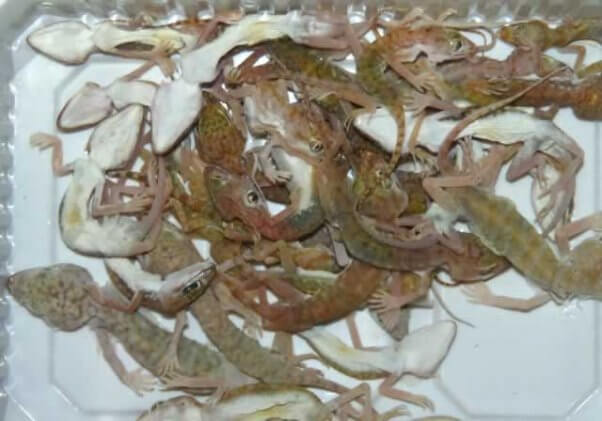

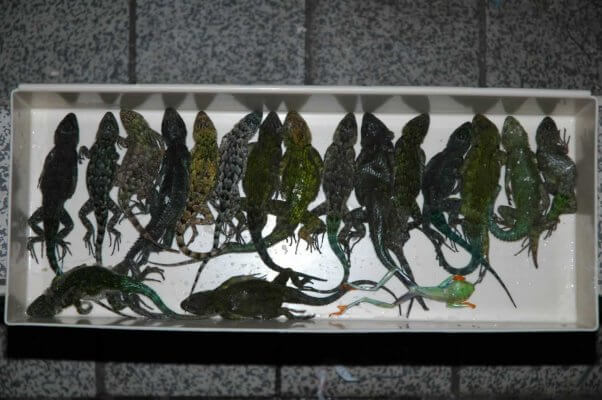
At German wholesalers, the dead reptiles are separated out upon arrival. The surviving ones are crammed into tiny plastic boxes, where they may languish for months or longer. PETA Germany’s eyewitness documented that the country’s largest snake dealer, M&S Reptiles, had snakes confined to containers so small that they couldn’t even stretch to their full length—and that some were kept in these containers for more than 10 years.

Some of the animals sent to Germany originated right here in the U.S. PETA Germany found that notorious Ohio reptile mill Reptiles by Mack was shipping animals to a German wholesaler at least up until 2013.
A PETA U.S. investigation into Reptiles by Mack documented that severely crowded bearded dragons fought for food, leading to mangled limbs, some left hanging by not much more than a thread of damaged tissue. One worker said that he snapped off their tails with his fingers and had cut off one bearded dragon’s leg with wire cutters. PETA’s eyewitnesses often found emaciated, lethargic animals who were unlikely to be able to compete for food.
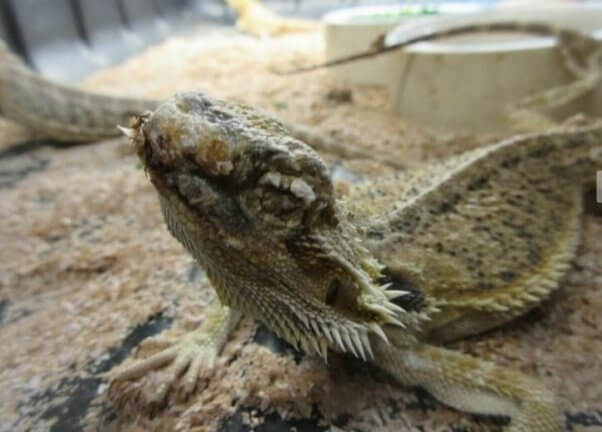
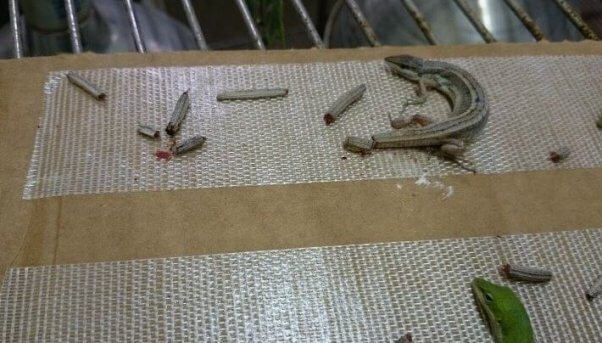
Animals were also regularly shipped from Reptiles by Mack in plastic containers resembling restaurant “to go” boxes—a PETA eyewitness saw hundreds of animals left in these containers for more than 24 hours without a drop of water or any food before finally being shipped off to other facilities.
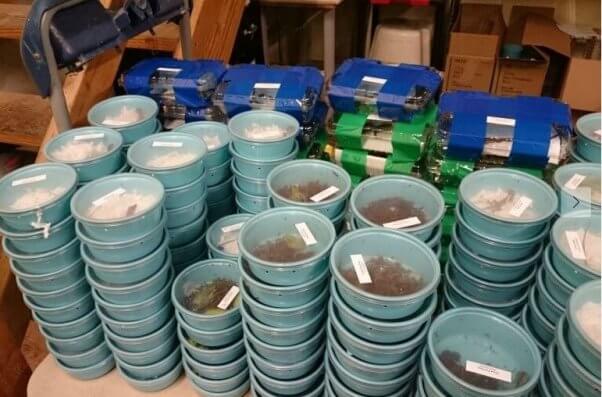
PETA Germany has pushed for criminal charges against two leading German wholesalers stemming from its investigation and is calling for a nationwide ban on the exotic-animal trade.
What You Can Do
Eyewitnesses from PETA U.S. and its international affiliates have repeatedly documented abuse and suffering at facilities that breed and sell animals. Pledge never to shop at any retailer that sells any animals, and always adopt from an animal shelter—never buy from a pet store or breeder.

